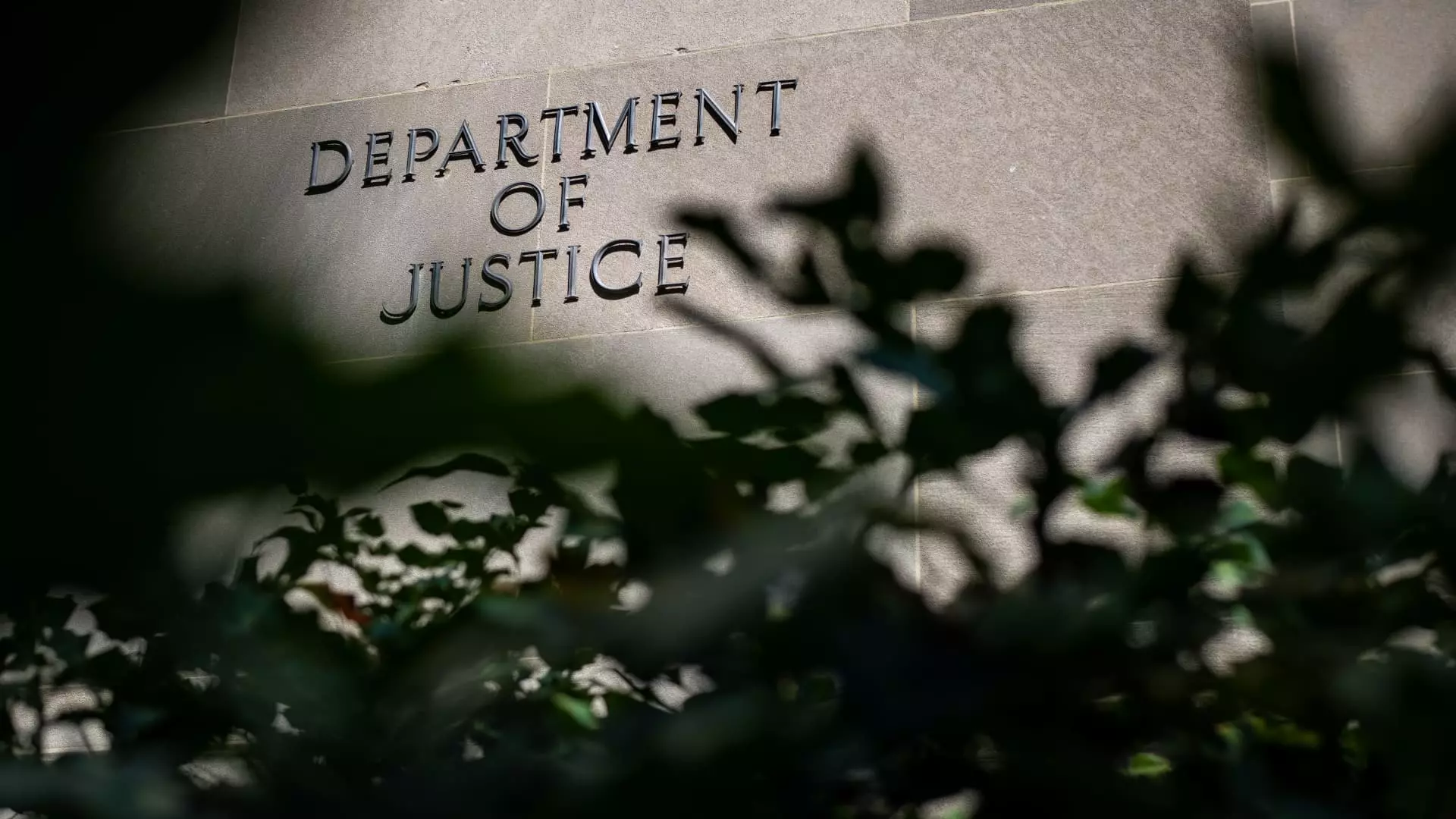The abrupt dismantling of the National Cryptocurrency Enforcement Team (NCET) by the U.S. Justice Department signifies a monumental pivot in the government’s approach to the regulation of cryptocurrencies. This decision, conveyed through a memo by Deputy Attorney General Todd Blanche, mimics a political ballet where the new choreography seems to ignore previous engagements. With the NCET formed under President Joe Biden’s administration to combat the misuse of digital currencies, its sudden shutdown is reflective of the current political landscape—one that appears to favor deregulation at the expense of accountability.
The memo explicitly states a transition toward decentralized enforcement, permitting local U.S. attorney offices to prioritize cases solely involving terrorism and the most severe offenses associated with digital assets. This brings into sharp relief a critical question: Is this truly a practical approach, or merely a politically motivated move that sidesteps the complexities surrounding crypto-related crime?
Shifting Focus: A Recipe for Unregulated Disaster
The Justice Department’s new strategy seeks to disband ongoing investigations that do not align with its updated priorities. This includes an explicit warning against prosecuting crypto-exchanges and other related services unless there’s evidence of willful violations by the users. The previous emphasis on rigorous enforcement against those who unintentionally fell afoul of regulations is now replaced with a laissez-faire attitude that opens the floodgates for potential exploitation.
This radical redirection raises concerns about investor protection in an already volatile market. Investors in digital assets deserve a level of oversight that safeguards them from fraud and malfeasance. With the Justice Department choosing to de-prioritize enforcement actions that could classify as “superimposing regulatory frameworks,” the very nature of accountability within the industry is at stake. History has taught us—particularly in high-stakes domains marked by rapid technological advancement—that unregulated markets often devolve into breeding grounds for deceit and scams.
The Political Undertones: Ties That Bind
What lies beneath the surface of this significant policy shift? One cannot overlook the political implications that accompany such changes, especially in light of the apparent kinship between the Trump administration and the expanding realm of cryptocurrency. Trump’s presidential campaign has positioned him as an advocate for a freer digital economy, even while he stands to benefit financially from ventures like World Liberty Financial, a nascent decentralized bank.
The intertwining of political ambition and corporate interests is evident, as the memo reflects a broader initiative to shift regulatory burdens away from criminal justice frameworks and into the hands of financial regulators. This creates an environment rife with conflicts of interest, as the administration appears not just to endorse, but to actively facilitate an economy where personal profits and campaign promises collide dangerously.
Moreover, the Trump family’s foray into the crypto space—where they profit from the sale of tokens and meme coins—could present an ethically dubious triumph of personal interests over public welfare. The decisions made today could very well set a precedent for tomorrow, where accountability erodes under the weight of self-serving financial endeavors masquerading as progressive policy.
Implications for the Future of Digital Assets
As the digital asset market grapples with a tumultuous decline—witnessing significant losses over recent months—what does this portend for the future? The current climate could signal almost apocalyptic ramifications for everyday investors who are now left vulnerable. Market stability, investor confidence, and ethical governance all hinge on a balanced approach to regulation. With the Justice Department’s diminishing involvement, what might emerge is a Wild West scenario that could render investors powerless in the face of rampant fraud.
While the memo hints at continued efforts to investigate and prosecute crimes directly tied to severe offenses, it alludes to a concerning trend: seriousness regarding safeguarding investors is being sacrificed at the altar of deregulation. As local attorney offices assume control, the risk of inconsistent enforcement becomes apparent, raising doubts about whether justice can be served uniformly across states.
The intertwining of personal interests in the regulatory landscape ultimately threatens the integrity of an industry already straddling a precipice. This shift, if taken at face value, may well represent a harrowing descent into chaos, leaving both investors and ethical governance behind in a rush towards unencumbered growth. In this pivotal moment, one can only wonder how long it will take for the consequences of this regulatory retreat to become painfully apparent.

Leave a Reply